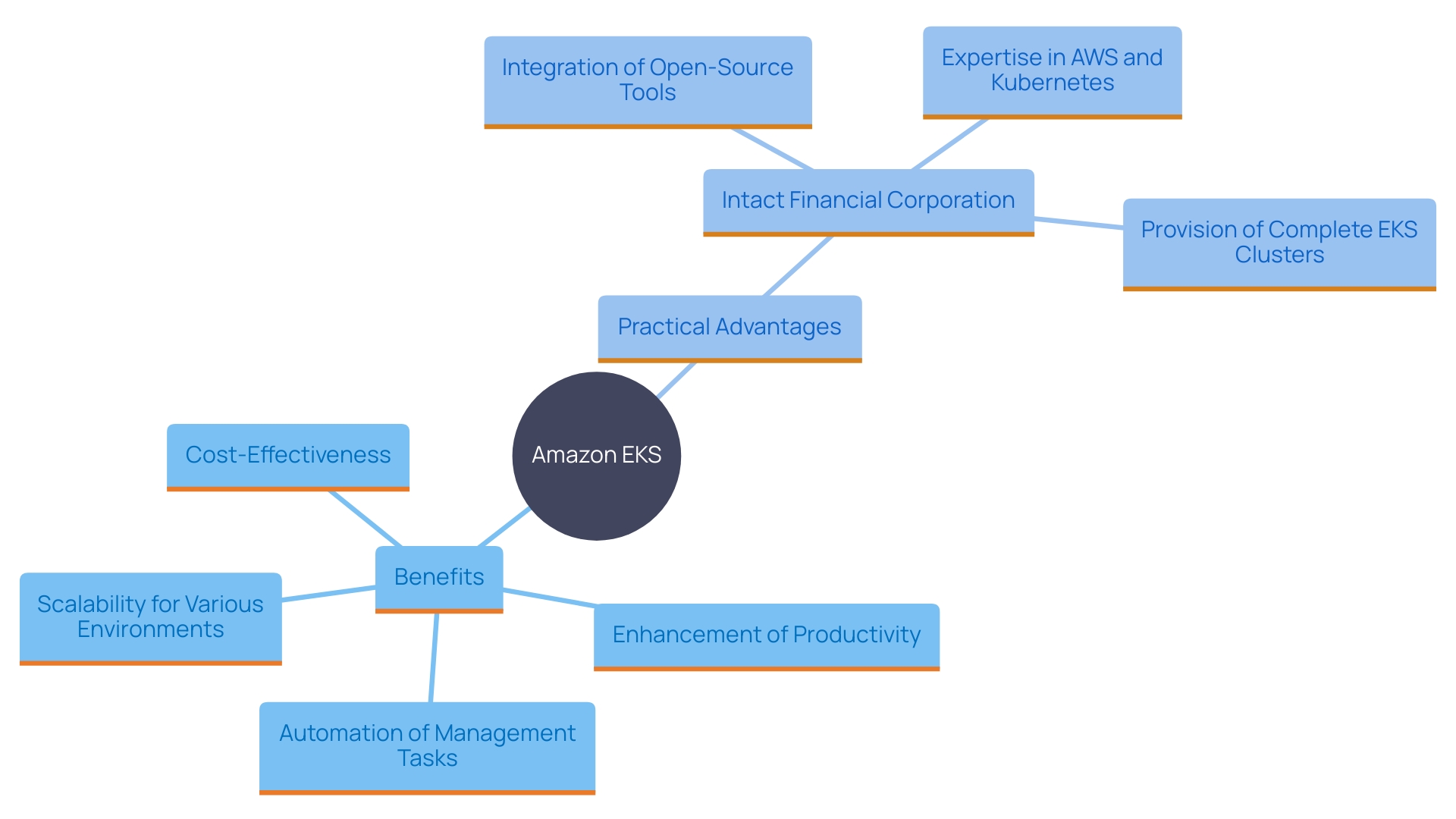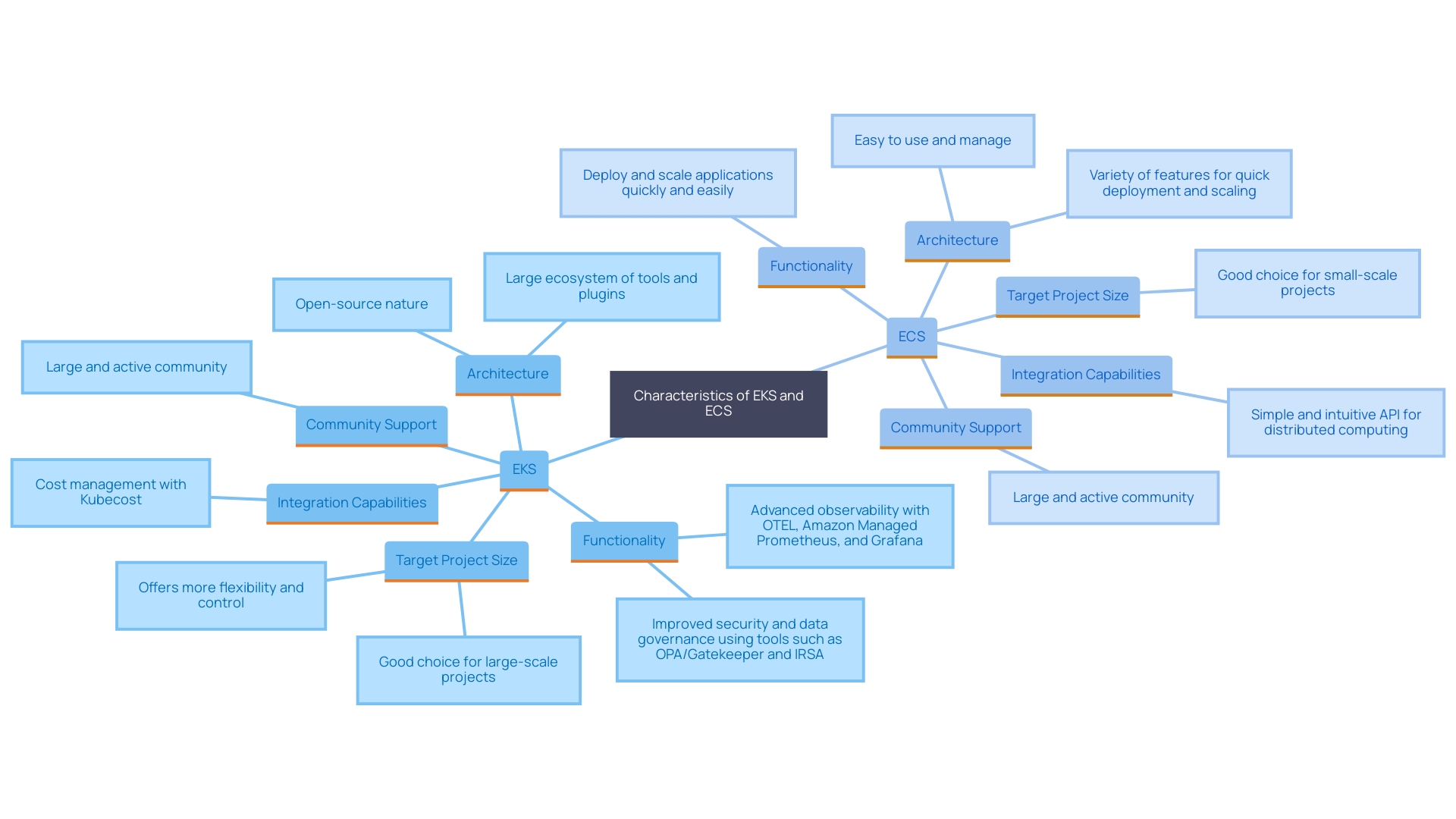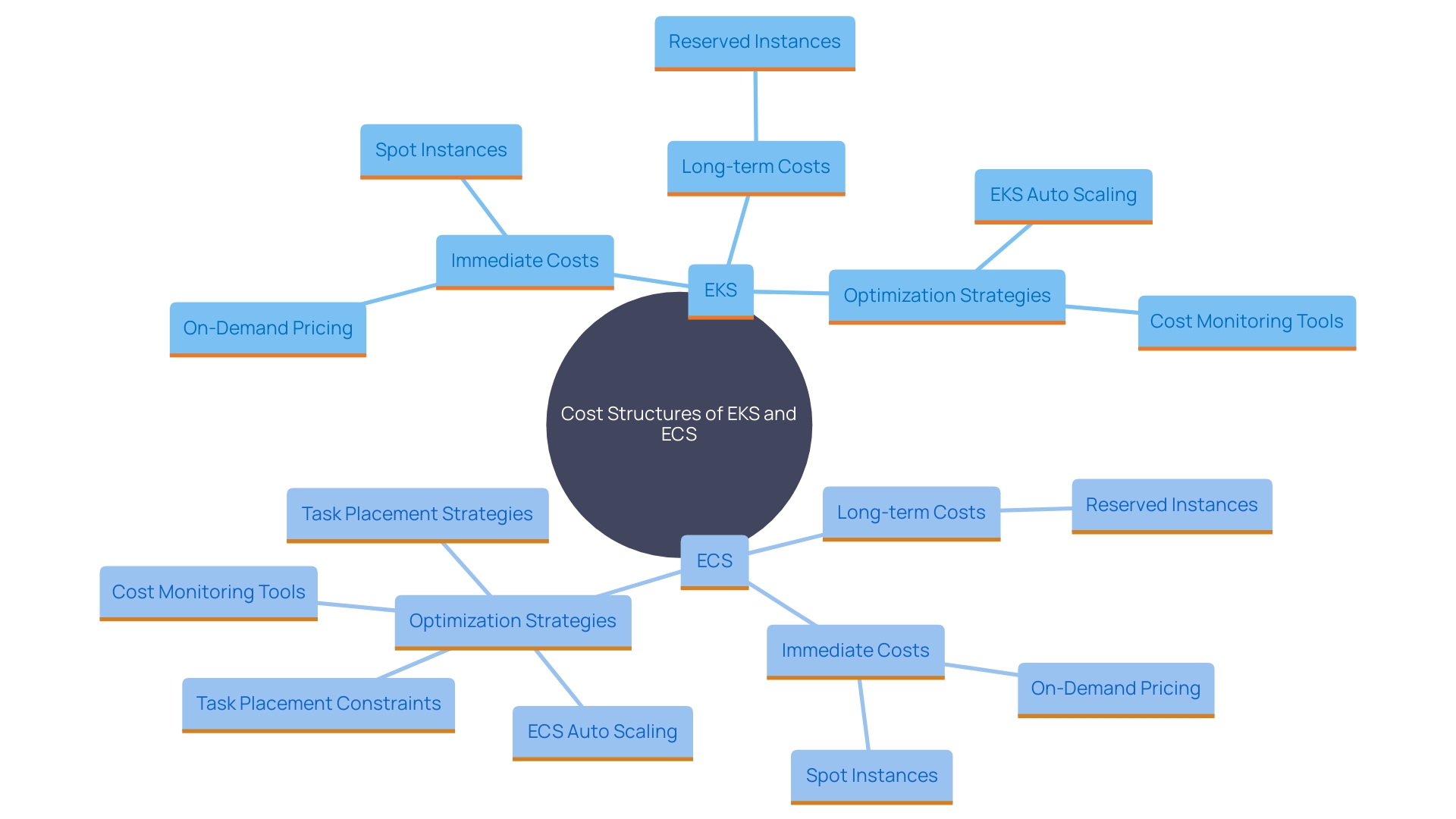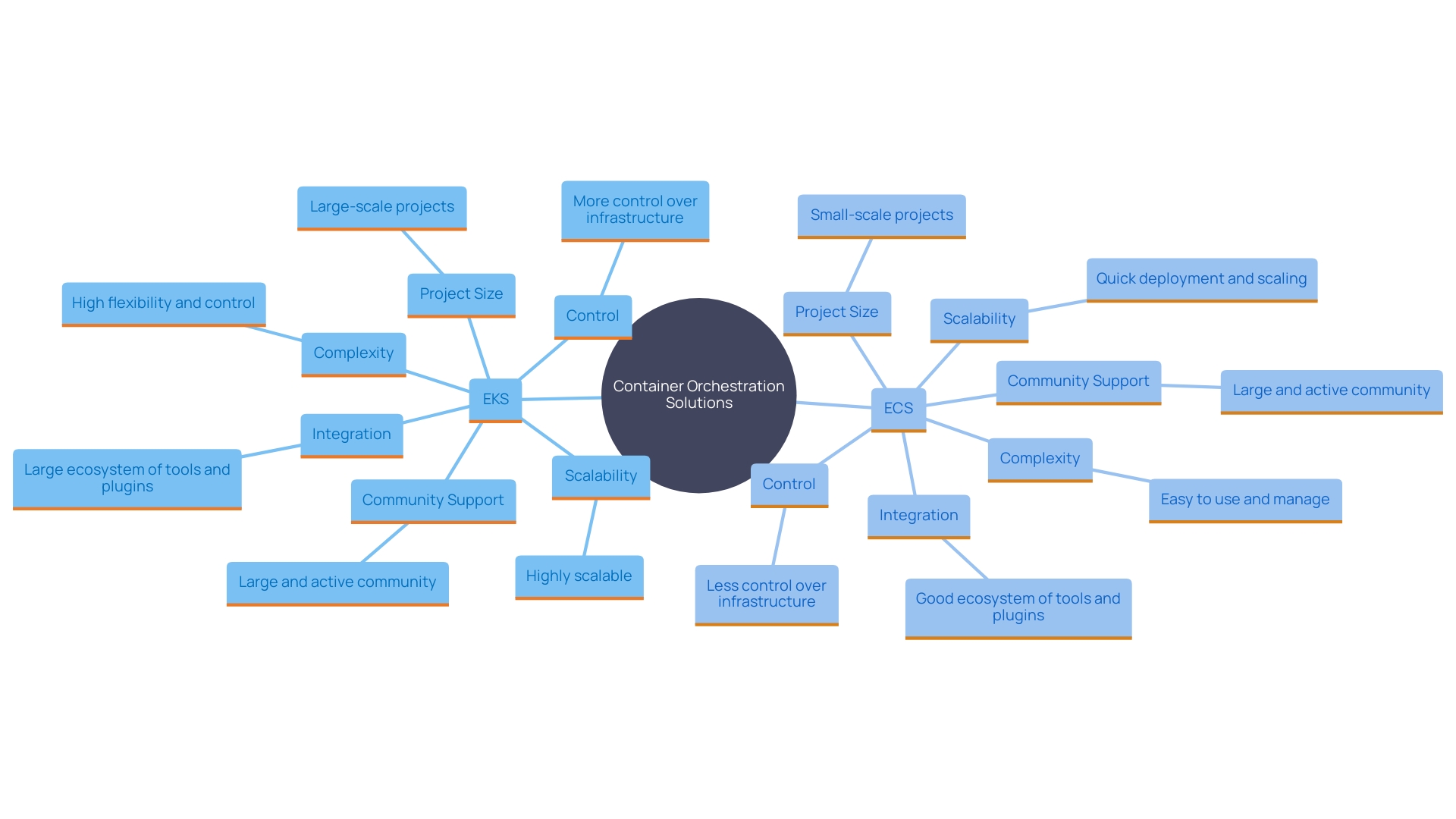Introduction
Amazon Elastic Kubernetes Service (EKS) stands as a pivotal tool in modern cloud infrastructure, offering a fully managed Kubernetes service designed to simplify the deployment, management, and scaling of containerized applications on AWS. By automating critical tasks such as patching, updating, and scaling of the Kubernetes control plane, EKS enables developers to focus on application development rather than the intricacies of infrastructure management. This service leverages the robust security, scalability, and reliability of AWS, providing users with Kubernetes' powerful orchestration capabilities while minimizing operational complexities.
EKS is integral for enhancing productivity and fostering innovation within development teams. For instance, Intact Financial Corporation utilized AWS services to significantly boost its customer support operations, achieving a remarkable increase in auditing speed and a reduction in agents' time per call. Such examples underscore the efficiency gains possible through the integration of AWS services with Kubernetes.
Furthermore, EKS offers scalability and flexibility, catering to both small development clusters and expansive production environments. It includes observability tools that collect vital data to identify performance bottlenecks and optimize resource allocation. Nodes within the EKS cluster connect to the control plane to efficiently manage Kubernetes resources, ensuring seamless operation and scalability.
Cost-effectiveness is another key advantage of EKS, as it eliminates the necessity for in-house Kubernetes expertise, leading to substantial long-term savings. Overall, EKS presents a comprehensive solution for organizations aiming to harness the full potential of Kubernetes on AWS, empowering them to achieve greater efficiency and innovation in their containerized applications.
Understanding Amazon Elastic Kubernetes Service (EKS)
'Amazon Elastic Container Service (EKS) is a fully managed platform that streamlines the deployment, management, and scaling of containerized applications on AWS.'. By automating essential tasks such as patching, updating, and scaling of the container orchestration system's control plane, EKS allows developers to concentrate on application development rather than infrastructure management. Users benefit from the powerful orchestration capabilities of the platform while leveraging AWS's robust security, scalability, and reliability.
EKS enhances productivity by reducing operational complexities, allowing development teams to focus on innovation. For instance, Intact Financial Corporation leveraged AWS services to enhance its customer support operations significantly. By adopting an AI-driven solution for call quality, they achieved a 1,500% increase in auditing speed and a 10% reduction in agents’ time per call. This highlights the possible efficiency improvements from combining AWS services with container orchestration.
Furthermore, EKS supports scalability and flexibility, accommodating both small development clusters and large production environments. Observability tools within an EKS cluster can gather critical data to identify performance bottlenecks and optimize resource allocation. Each node in the cluster connects to the control plane to manage resources such as pods, secrets, and volumes, ensuring smooth operation and scalability.
Cost-effectiveness is another benefit of using EKS, as it removes the necessity for internal container orchestration expertise, leading to long-term savings. Overall, EKS provides a comprehensive solution for organizations aiming to utilize the full potential of container orchestration on AWS.

EKS vs. Amazon Elastic Container Service (ECS): A Comparative Analysis
When comparing EKS and ECS, it's crucial to understand their distinct architectures and functionalities. EKS delivers a Kubernetes-native experience, providing granular control over the orchestration of containerized applications and a vast ecosystem of tools and plugins. This makes the platform an excellent choice for large-scale projects requiring flexibility, control, and extensive customization.
Conversely, ECS offers a more straightforward alternative that integrates seamlessly with other AWS services. It's designed with high availability and resilience in mind, making it ideal for small-scale projects and organizations seeking ease of use and quick deployment. ECS's close integration with AWS services streamlines management and scaling, although it doesn't offer the advanced features and flexibility that are characteristic of container orchestration systems.
Both platforms have active communities and support networks. However, organizations looking for portability and extensive multi-cloud support might find EKS more appealing. Meanwhile, those prioritizing simplicity and seamless AWS integration might prefer ECS. As one expert notes, 'We built Amazon ECS so that you can use the constructs we use ourselves to achieve high availability easily, so that you can focus on those aspects of your application that truly differentiate you and your business.'

Cost Considerations: EKS vs. ECS
When evaluating the cost structure of EKS and ECS, it is critical to consider both immediate and long-term financial impacts. EKS incurs additional costs for the managed container orchestration control plane, which can be offset by potential savings in operational overhead due to its advanced automation capabilities. ECS, on the other hand, is free to use, with expenses primarily driven by the underlying EC2 instances.
Optimizing these services requires a thorough analysis of your application’s resource requirements and choosing the appropriate pricing models, such as On-Demand, Reserved Instances, or Spot Instances. Utilizing ECS Auto Scaling can further enhance cost efficiency by dynamically adjusting the number of tasks based on demand.
Enhanced cost monitoring tools like OpenCost and Kubecost can offer invaluable insights into resource allocation and help maintain cost-effectiveness. Kubecost, for example, is acknowledged for its strong abilities in cloud cost optimization, overseeing over $3 billion of cloud expenditure across extensive environments.
Ultimately, organizations must evaluate their usage patterns and operational capabilities to determine the most cost-effective service, ensuring that their containerized workloads are both efficient and economical.

Real-World Use Cases: Choosing Between EKS and ECS
Choosing between EKS and ECS depends on specific project needs and organizational expertise. For enterprises with a strong container orchestration background or those requiring advanced management, EKS offers immense flexibility and control. Its open-source nature and vast ecosystem of tools and plugins support complex, large-scale applications effectively. Additionally, the active container orchestration community ensures ample resources and support for users.
Conversely, ECS is ideal for smaller projects and startups seeking rapid deployment and seamless AWS integration. Its simplicity and ease of management make it a favorable choice for teams looking to scale applications quickly without the complexity of Kubernetes. ECS's active community also provides essential resources, ensuring a smooth deployment process.
Understanding the project’s requirements, such as the need for scalability, control, and integration, is crucial in making an informed decision between EKS and ECS.

Conclusion
Amazon Elastic Kubernetes Service (EKS) emerges as a vital solution for organizations aiming to streamline the deployment and management of containerized applications on AWS. By automating essential tasks, EKS allows developers to focus on innovation rather than the complexities of infrastructure management. Its integration with AWS's robust security and scalability features enhances productivity and enables companies to achieve significant operational efficiencies, as demonstrated by real-world applications like Intact Financial Corporation.
In comparing EKS with Amazon Elastic Container Service (ECS), it is evident that each platform serves distinct purposes. EKS provides a Kubernetes-native experience, ideal for large-scale projects requiring flexibility and extensive customization. Conversely, ECS offers a more straightforward and user-friendly alternative tailored for smaller projects, emphasizing ease of use and quick deployment.
Organizations must weigh their specific needs, such as the desired level of control and integration with AWS services, to determine the most suitable option.
Cost considerations further play a crucial role in the decision-making process. While EKS may incur additional costs related to its managed control plane, the potential savings in operational overhead can justify this investment. ECS, being free to use, primarily incurs costs through underlying EC2 instances, making it an attractive option for budget-conscious projects.
The implementation of cost monitoring tools can facilitate informed financial decisions, ensuring that containerized workloads are both efficient and economical.
In conclusion, the choice between EKS and ECS hinges on an organization's project requirements, expertise, and long-term goals. By understanding the unique advantages and limitations of each service, businesses can harness the full potential of AWS to drive innovation and efficiency in their containerized applications.




